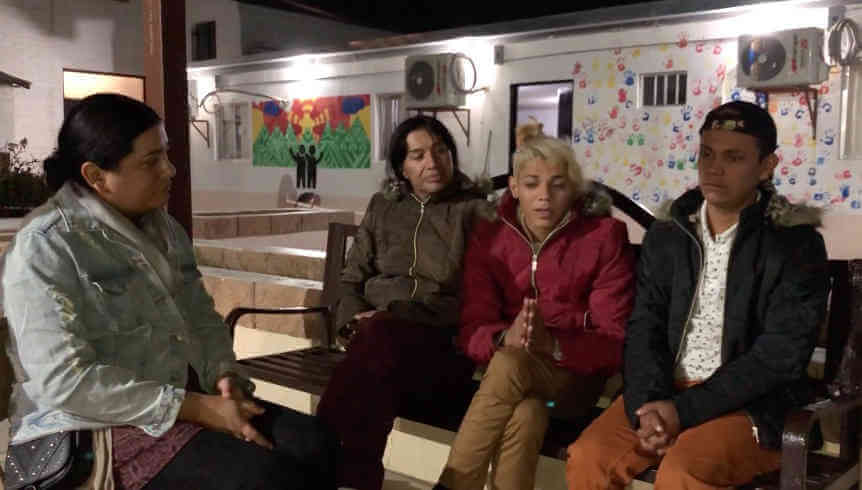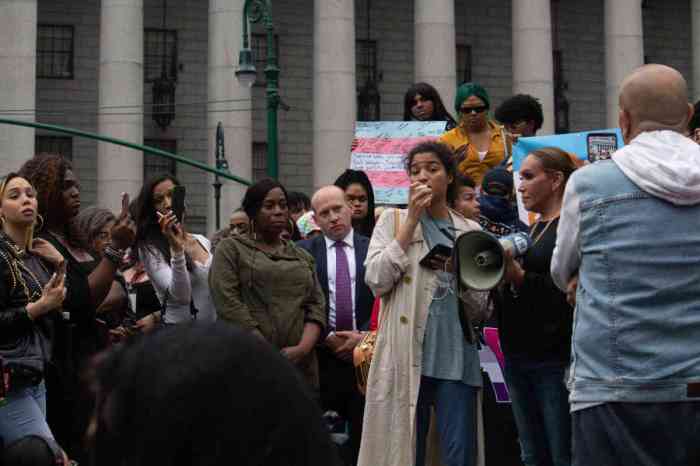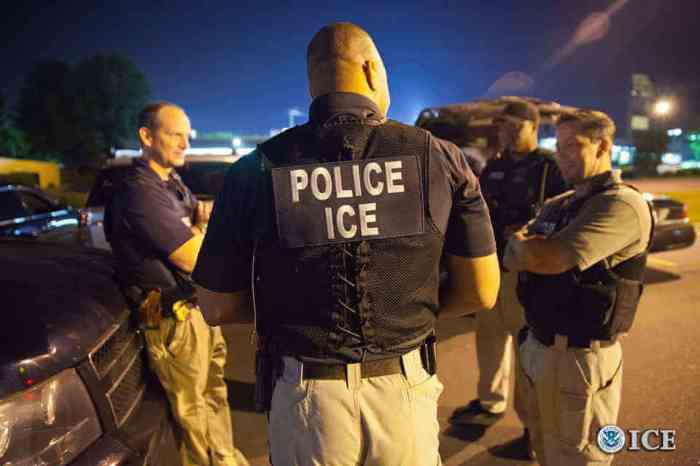In a video posted recently by the Transgender Law Center (TLC), three trans women seeking asylum in the United States discussed the adversity they have faced in their journeys from their home countries.
Cataleya Zulay, Shantal Mendoza, and Chirly Jaritza were forced to flee dangerous situations due to their gender identity — and like many other refugees, they’re not asking for much. They just want to be accepted as humans and live a normal life.
As the trio prepared to present themselves to US Customs and Border Protection (CBP), the TLC urged officials to grant them medical parole while they awaited responses to their petitions.
Zulay, who is from Honduras, conveyed how comfortable she is to be a transgender woman, but stressed that transphobia in her home country prevented her from being able to live in peace.
“You can’t act like yourself, you can’t dress the way you’d want to, you can’t have the freedom that you’d like [and] the freedom that you need to have,” she said in a translated version of the video.
Zulay emphasized that she intends to follow every law in her effort to obtain asylum.
“We want to turn ourselves in at the border and ask for asylum to be able to enter the United States and to succeed and move forward like we’ve always wanted to,” she explained.
Mendoza, who is HIV-positive, said she fled Mexico because there were no opportunities for her to grow. She is among those who are merely hoping for a chance to get a fresh start in a new country.
“I believe I have reached a point in which I realize that there is no future for me here in my country for me, for a transgender woman, because homophobia and discrimination exist,” she said. “I don’t want to be the exception. I want to live with dignity, I want to live well, healthy, work, and act the way I’d want to, grow as a human being.”
Jaritza, from El Salvador, was blunt: To be an LGBTQ person in her country is a crime, she said, and she wants to secure better healthcare because she, too, is HIV-positive. Medicine in El Salvador is scarce and she does not want to worry about running out.
She has stuck with her effort to pursue asylum in the US despite encountering violence and discrimination along the way. Other refugees who traveled in the same caravan have mistreated her, she said.
“But it didn’t matter because I left my country searching for a better future, so that my rights are respected as a trans woman,” she said.
Transgender women and other LGBTQ refugees are known to face elevated risks of mistreatment at the US border, but they often still opt to make the dangerous trip because they already faced life-threatening situations back at home.
Like Zulay, 33-year-old transgender woman Roxsana Hernandez was also fleeing Honduras for the US earlier this year when she died in ICE custody. An independent autopsy found that she suffered bruises consistent with abuse, yet ICE denied all allegations of abuse and have refused to release details of her case, despite congressional requirements that such information be made public promptly.
A wrongful death claim filed by the Transgender Law Center in that case is currently pending.
After a eight-year-old Guatemalan boy died in the custody of CBP on December 24 — just weeks after the death of a seven-year-old girl, also from Guatemala — the agency announced this week it would be conducting secondary medical checks on children, according to NBC News. CBP will also request medical assistance from other agencies and is reviewing how in general it holds immigrants in custody.
The agency could not immediately be reached for comment on further details surrounding the planned changes. Two representatives from CBP sent auto-reply emails to Gay City News noting that they are unable to respond to inquiries due to the government shutdown.


































